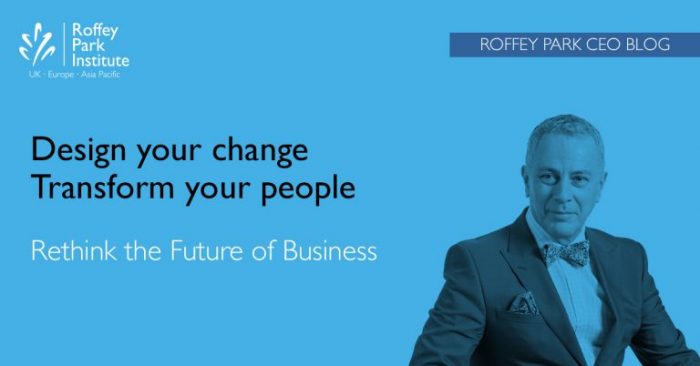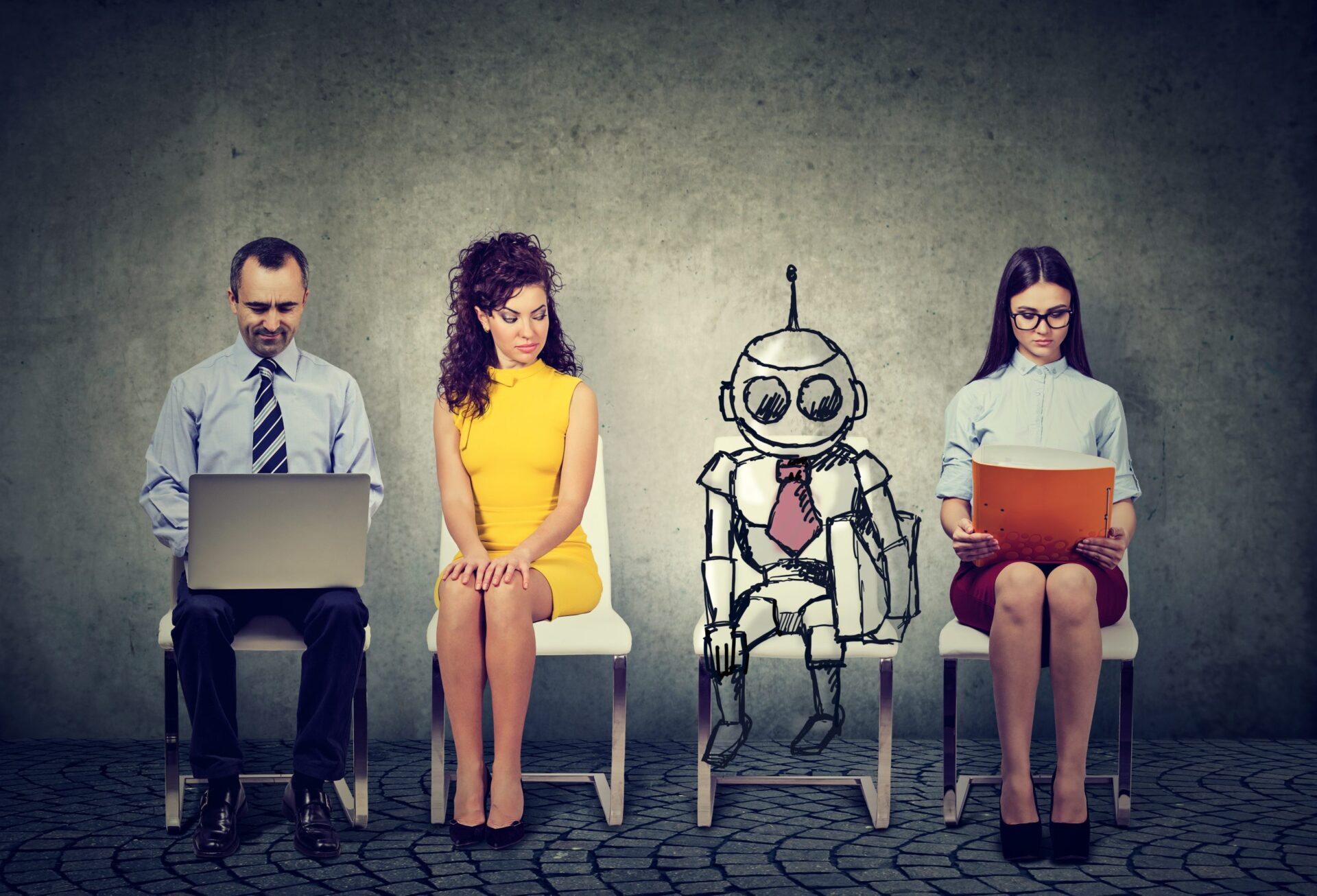
Covid-19 has transformed the world, and with it the future of work and business. What should we be thinking about? How should we begin to prepare for the new future?
What’s the future of business? What’s the future of work? And how do we prepare for future business trends?
The world looks a very different place than it did in December 2019 when the first reports of the coronavirus were beginning to emerge. Assumptions have been swept away.
Roffey Park has been supporting individuals and organisations to think through some of the implications of the post-Covid 19 world. In the first of a series of interviews, Roffey Park CEO, Dr Robert Coles, shares some of his insights on the big issues of the future and how we might approach them.
How many organisations will be thinking the unthinkable around the future of business? What is the future of business trends?
“If you are an organisation which is perhaps in engineering, perhaps making aero parts, you’re possibly in deep trouble for years to come. There are big names out there that if they are not futurising or imagining or socially connecting with their workforce and their wider market place then they are reducing their chances of survival.
“As I’ve said in other blogs it’s really important that this process of thinking should not be a top-down process. Collective thought, and action, is required. There are some sectors for which this is now an imperative.
“I’ve talked before about a restaurant which bought a whole set of mini greenhouses to allow more diners to come and eat while they practice physical distancing. It’s low tech Imagineering, but then technology is not the only form of innovation. We need to rethink technology as being the only source of value: it isn’t.
“We’ve underplayed human value for a long time and lots of things will start to come back into play. That’s part of how to prepare for the future of work.”
Find out more: From anxious activity to wise collective action: navigating uncertainty together
“There’s an argument, for example, for the return of craft communities. There’s a city in south-west England that has its own alternative currency, that essentially enables a barter system. People exchange skills and expertise rather than paying for them: it has been around for decades, showing there are alternatives and they are possible.”
Find out more: The “Now Normal” – retelling organisational tales
What do you think the coronavirus’ economic impact will be?
“There’s a lot of change coming, that’s for sure.
“We have started to detach ourselves from the founding assumptions of the mass consumptions economy; some think it is fundamentally dead along with globalisation. There’s certainly much to be said for revisiting the assumption that globalisation is a necessary or a good thing.
“The concept of money being backed by something of value disappeared a century ago. A £5 note is only worth £5 if we think it is: it is no longer backed by a piece of gold or anything else.
“The assumption that most activity will be mass service industries serving a mass audience based on the globalised and dehumanised supply chain – well, I think those assumptions are all up for re-examination. One of the early effects of our shutdown in the UK and the EU was that hundreds and thousands of Bangladeshi factory workers who make cheap clothes for us were thrown out of work on the spot. Whilst we talk about our difficulties, people for whom we have little concern have been reduced to absolute poverty.
“They were earning next to nothing anyway, and their government may well be unable to offer the kind of support we’re taking for granted. Any economic system that can reduce already fragile people to absolute penury while rich nations just print money for themselves is deeply flawed. It is certainly not an inevitable, single way of being.”
What are your future of work predictions?
“Well… if I knew with certainty these recent upheavals meant for the future, I’d be very wealthy! I think this crisis offers us some challenges and opportunities.
“The challenges are well-rehearsed. What can we do in a world system that can no longer carry on recklessly consuming and producing, whilst damaging its own ecosystem in order to so? The future of thoughtless consumption is hopefully limited.
“That has implications. The inequalities between the rich world and the developing world are going to have to be ironed out. We have a challenge of putting all humanity as a generality before some humanity as individuals. “That’s a problem in the West because we are perhaps too drugged on the concept of individualism to imagine living any other way. It is going to be very difficult, but unless and until we detox ourselves from the religion of individualism we are in serious danger of the current crisis heralding the beginning of the end, and not in a good way.”
So what’s the l effect on the future of business? Has the crisis changed our thinking so radically that the future of work trends are transformed?
“If we can rethink some of our economic assumptions and social assumptions this might not take us back to where we were – because you can never go back – but might take us to a new formulation. There are some big questions: how do society and industry interact? What’s the purpose of production and consumption within a community-based society? What this situation does is offer us the opportunity to think about some big questions.
“At a personal level I think it challenges us with some very straightforward things. Many of us are addicted to consumption for no good reason. We must challenge ourselves to stop. But if enough of us did, the irony is that although it might be good for the ecology of the planet it would be massively destructive in some developing countries from an economic perspective.
“Our individual choices and global policy choices are intertwined. So, while we think the big things like how to rebalance wealth between north and south on the planet, we in the rich countries have to stop consuming as though we have the God-given right to pollute every corner of our planet.
“Of course, whilst making these changes sounds benign and good, they also present new challenges. For example, how will we address the issue of the millions and millions of phenomenally badly paid workers in the developing world who would be destitute if we all stopped consuming tomorrow. “We risk exposing them to mass starvation, civil unrest, war and all sorts of other things if we did that. So, the big challenge for the futurologists among us is how do we transition from a deeply destructive economic model to a sustainable balanced model without causing mass suffering to the weakest people in the process. That’s a challenge it’s almost impossible to see an answer to at the moment.”
How to prepare for the future of work? What do we need to think about?
“We need to think about three things, from the personal to the organisational to the macro-economic level.
“First of all, in our immediate work relationships, we will need to give people time and space to describe how tough it’s been. Whilst some people are thriving in lockdown mode, we’ve all been impacted in some way and have different experiences. We need to encourage people to shout it all out at the sky, and let go of the stress and anxiety.
“Organisationally, we need to move away from the idea that resilience is an individual thing. It’s not, it’s always a collective responsibility. There needs to be an organisational mindset shift towards the idea that if I have a problem it’s not purely my problem to fix alone, but a problem other people can help with. If we’re able collectively to find ways of helping each other overcome challenges, then organisations and individuals will recover their resilience and effectiveness and positivity that much faster.
“At the macro-economic level, there needs to be a united effort to consider these holistic, world issues around production and consumption, in particular. In doing so, we need more than simple cost-benefit financial metrics; we must change what we value, what is valued and how we understand the value of everyone.
“How do we support ordinary workers in developing or mid-income countries so that we can encourage consumption-addicted rich countries off their drug, for example? These things, these people and their lives, are all interrelated.
“We’ve hopefully realised over the last few weeks just how little we actually need in terms of things and how much we do need in terms of people. We can devalue owning things and revalue understanding others, and that’s good. But it will have huge implications for people who run and work in business and organisations. They will have to reimagine how they fit into this.”





